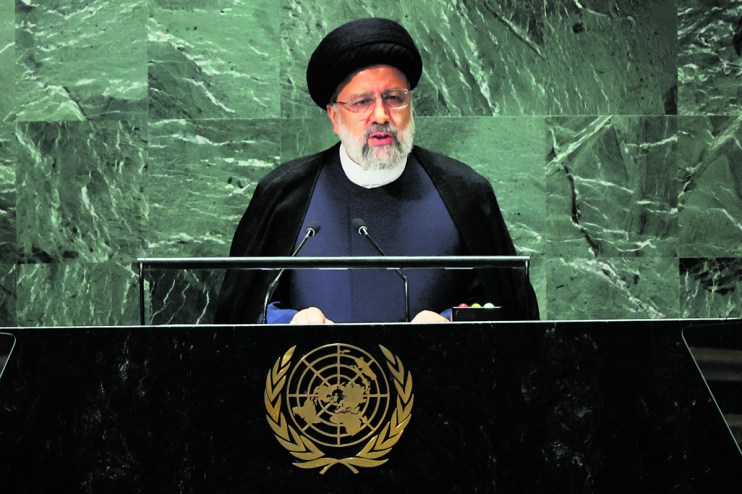President Raisi didn’t have a ‘mixed legacy’ – he’s a murderer

Per a tweet from the BBC, our effectively state-funded broadcaster, the Iranian President Ebrahim Raisi died with a “mixed” legacy.
On the one hand, he was known as the butcher of Tehran, responsible for propping up a despotic regime whose human rights abuses rival that of any in post-war history with an unrelenting programme of terror and repression.
One struggles to imagine what the other hand holds, other than perhaps a stone, but perhaps the BBC knows something we don’t: a good gardener, perhaps, or an uncle who always taped a note to the inside of his nephew’s birthday card.
Not to be outdone, the UN dropped its flag to half-mast to mark the passing of Raisi, which should serve to remind those who fetishise the “global institutions” that they have been captured by the very worst of their membership.
In the aftermath of Islamic State’s rape-and-pillage blitzkrieg across large parts of Iraq and Syria, there was widespread agreement amongst the commentariat that the shocking crimes committed would at least strengthen the resolve of those in the free, democratic world to stand up for their values – to be proud of them.
That places like Britain were better places to live than Iran, and that our model of society was superior. Tolerance, openness, allowing women out on their own, not stoning blokes for snogging other blokes, that sort of thing.
Yet here we are, backsliding again, with all sorts of know-betters telling us that the Israeli government is no better than Hamas, and paying tribute to Raisi at the same time as millions of those who actually had to live with the man in charge breathing a sigh of relief.
The man was a murderer, a tyrant, and in this paper at least there are no tears for him, no equivocation. The world without Raisi is a better world. “Mixed legacy,” honestly.